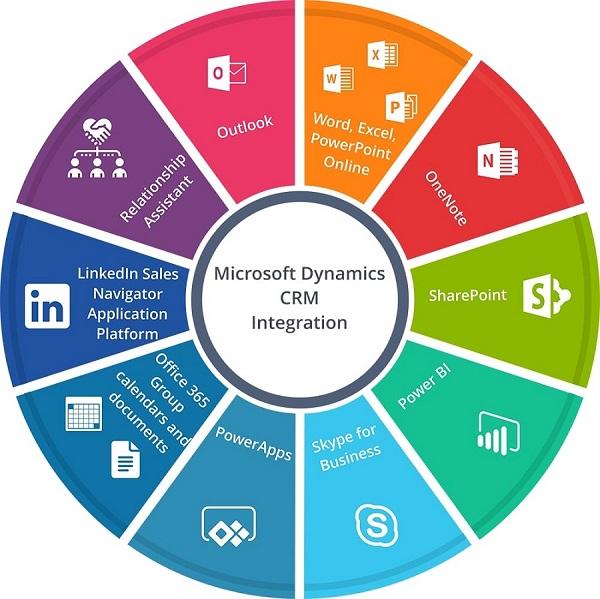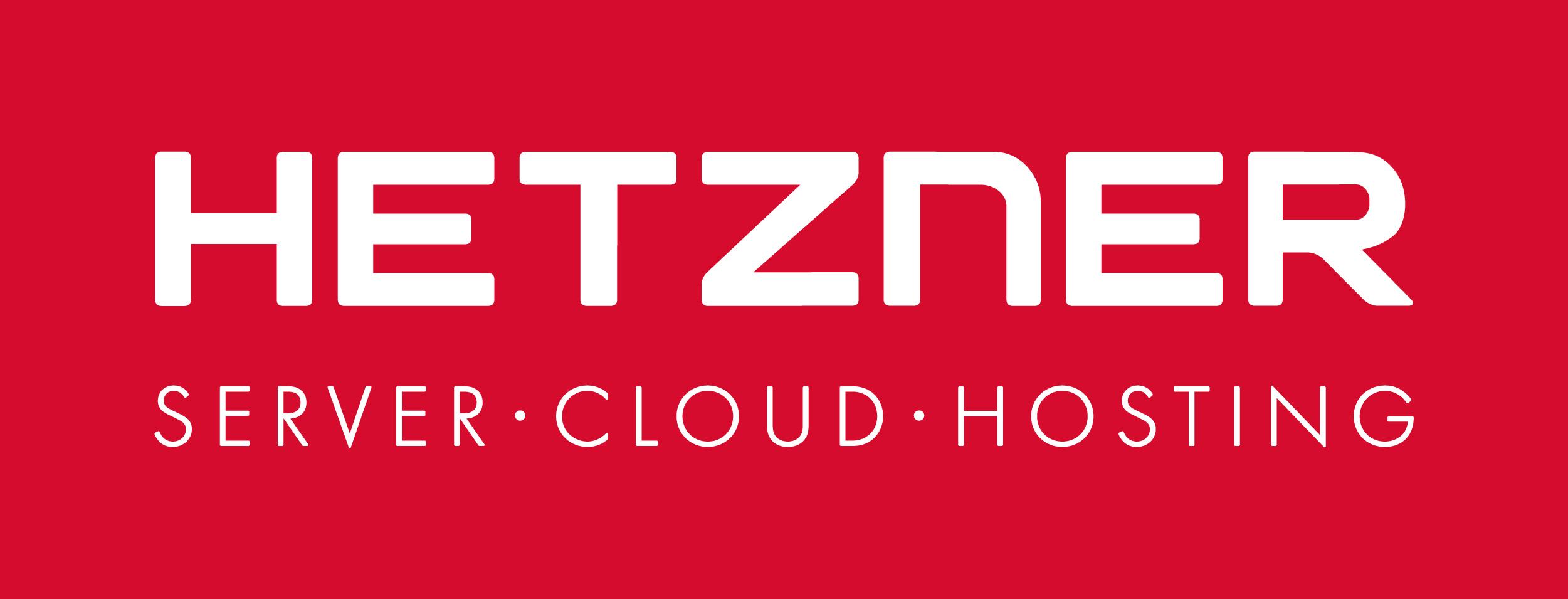
Introduction: OVH Cloud vs. WestHost – Your Ultimate Guide for 2024
In the ever-evolving digital landscape, choosing the right cloud hosting provider can feel a bit like navigating a maze. With so many options available, how do you even begin to decide? If you’re on the hunt for a reliable cloud solution, you’ve likely stumbled upon two heavyweights: OVH Cloud and WestHost. Both offer unique features and benefits, but which one is right for your needs in 2024?
In this friendly guide, we’ll break down everything you need to know about OVH Cloud and WestHost to help you make an informed decision. From performance and pricing to customer support and scalability, we’ll dive into the nitty-gritty of what each provider has to offer. So grab a cup of coffee, settle in, and let’s explore which hosting option will best power your online presence this year!
Understanding OVH Cloud and WestHost in 2024
In 2024, choosing the right cloud service can make all the difference in streamlining operations and enhancing overall performance. OVH Cloud and WestHost stand out as two reputable options, each with its unique advantages and offerings. Understanding their features will help you make an informed decision that aligns with your business goals.
OVH Cloud is known for its robust infrastructure and scalability. It provides a wide range of services including:
- Public and private cloud solutions
- Dedicated servers
- Virtual Private Servers (VPS)
- Web hosting
- Domain registration
This diversity means that businesses of all sizes can find a suitable solution. The platform emphasizes performance and reliability, making it a popular choice among tech-savvy users who require customizable options.
On the other hand, WestHost offers a more straightforward approach, focusing primarily on shared hosting and managed services. Its key features include:
- Affordable shared hosting plans
- Managed WordPress hosting
- 24/7 customer support
- Free website migration
WestHost is particularly appealing to small businesses and individuals looking for simplicity and cost-effectiveness, without compromising on service quality.
When comparing the two, it’s essential to consider pricing structures. Below is a brief overview of their cost-effectiveness:
| Service | OVH Cloud Price Range | WestHost Price Range |
|---|---|---|
| Shared Hosting | Starting at $3.99/month | Starting at $2.99/month |
| VPS Hosting | Starting at $5.00/month | N/A |
| Dedicated Servers | Starting at $70.00/month | N/A |
| Managed WordPress | N/A | Starting at $6.99/month |
Both platforms provide excellent uptime, but OVH has a slight edge in terms of performance due to its expansive data center network across multiple continents. If global reach and speed are paramount for your operations, OVH Cloud may be the better choice.
Conversely, if you value personalized support and ease of use, WestHost’s customer service is often highlighted as a strong point. They offer tailored solutions, making it easier for newcomers to navigate the complexities of web hosting.
Ultimately, the best choice between these two providers will depend on your specific requirements. Are you a growing business needing extensive resources and scalability? Or are you a startup seeking budget-friendly solutions? Understanding your unique needs will guide you to the right platform for your journey in 2024.
Key Features of OVH Cloud That Stand Out
When it comes to cloud services, OVH Cloud offers a plethora of features that cater to both small businesses and large enterprises. Here are some standout aspects that set OVH apart in the competitive cloud landscape:
- Global Reach: OVH Cloud operates data centers across the globe, providing customers with a multitude of options for data localization. This ensures minimal latency and compliance with local regulations.
- Scalable Solutions: The platform allows businesses to easily scale their resources up or down based on demand. Whether you’re experiencing growth or seasonal fluctuations, OVH makes it easy to adjust your infrastructure accordingly.
- Exceptional Performance: With cutting-edge technology and high-speed connections, OVH Cloud guarantees a reliable performance that can handle heavy workloads and demanding applications.
- Cost-Effective Pricing: OVH offers transparent pricing models with no hidden fees. Their pay-as-you-go approach allows businesses to manage costs effectively while only paying for what they use.
- Advanced Security Measures: OVH places a strong emphasis on security, offering DDoS protection, data encryption, and a range of compliance certifications to safeguard your data.
- Innovative Tools: Users benefit from a suite of tools for monitoring, backup, and management, enhancing operational efficiency and simplifying cloud resource management.
Additionally, OVH Cloud provides a variety of service options, including:
| Service Type | Features | Ideal For |
|---|---|---|
| Public Cloud | Flexible scalability, multi-tenant architecture | Startups and small businesses |
| Private Cloud | Dedicated resources, enhanced security | Larger enterprises with compliance needs |
| Hybrid Cloud | Combination of public and private, tailored solutions | Businesses requiring flexibility and control |
Another compelling feature is OVH’s commitment to sustainability. They have implemented energy-efficient practices and aim to use 100% green energy, making them a responsible choice for eco-conscious companies.
the user-friendly interface and comprehensive customer support make OVH Cloud an attractive option for all skill levels. With extensive documentation, tutorials, and a responsive support team, users can find the help they need quickly and easily.
Exploring WestHosts Unique Selling Points
When it comes to web hosting, WestHost offers a variety of features that set it apart from competitors like OVH Cloud. Its commitment to customer satisfaction and robust service offerings make it a compelling choice for users looking to establish a reliable online presence.
One of the standout features of WestHost is its affordability. The hosting plans are competitively priced, catering to both small businesses and larger enterprises without sacrificing quality. Customers can choose from a range of packages that fit their budgets while still receiving top-notch service. This makes it an ideal option for startups and entrepreneurs who need to keep overheads low.
- Flexible Pricing Plans: Various tiers to suit different needs.
- Monthly Payment Options: No long-term commitments required.
- Discounts for Long-Term Contracts: Save more by choosing annual billing.
Another significant advantage of WestHost is its user-friendly interface. The control panel is designed with simplicity in mind, allowing users of all skill levels to navigate with ease. Whether you’re a tech novice or a seasoned developer, the intuitive layout makes managing your hosting environment a breeze. You can quickly set up email accounts, manage databases, and install applications without hassle.
Additionally, WestHost shines in its customer support. With a dedicated team available 24/7, users can expect timely assistance whenever they encounter issues. Their commitment to providing exceptional service is reflected in numerous positive reviews and high customer retention rates. This level of support ensures that your website remains operational and your mind stays at ease.
| Feature | WestHost | OVH Cloud |
|---|---|---|
| Price Range | Starts at $3.95/month | Starts at $5.00/month |
| Customer Support | 24/7 Live Chat | Email & Ticketing |
| Control Panel | Custom, User-Friendly | cPanel |
| Money-Back Guarantee | 30 Days | 14 Days |
Moreover, WestHost provides scalability options that cater to growing businesses. As your needs evolve, so can your hosting plan. This flexibility means you won’t need to switch providers as your traffic increases or your business expands, which can save you time and money in the long run.
Lastly, WestHost prioritizes security. With robust security features like daily backups, SSL certificates, and DDoS protection, you can rest assured that your website and its data are safe from threats. In today’s digital landscape, having a secure hosting solution is not just an option; it’s a necessity.

Performance Comparison: Speed and Reliability
When it comes to choosing a cloud hosting provider, performance is often at the forefront of decision-making. In this comparison, we dive deep into the speed and reliability of OVH Cloud and WestHost, two formidable players in the hosting arena.
OVH Cloud has built a reputation for speed with its robust infrastructure. Utilizing a high-speed network and optimized data centers, OVH offers:
- Low Latency: Their global network ensures that users experience minimal delays.
- Solid State Drives (SSD): With SSDs as standard on many plans, OVH guarantees faster data retrieval and application load times.
- Flexible Scalability: Quick scalability options allow resources to be allocated swiftly, maintaining performance during traffic spikes.
In contrast, WestHost may not have the same global footprint, but it compensates with a focus on reliability and customer support. Key features include:
- 99.9% Uptime Guarantee: WestHost prides itself on consistent availability, which is crucial for businesses relying on their online presence.
- Quick Response Times: Their support team is known for addressing issues promptly, helping maintain uptime.
- Managed Hosting Services: With managed plans, WestHost takes care of server maintenance, allowing users to focus on their core business.
To better visualize the differences, consider the following comparison:
| Feature | OVH Cloud | WestHost |
|---|---|---|
| Network Latency | Low | Moderate |
| Uptime Guarantee | 99.95% | 99.9% |
| Data Storage Type | SSD | Standard HDD/SSD |
| Support Response Time | 24/7 Live Chat | Quick Email Support |
if your priority is fast load times and advanced infrastructure, OVH Cloud stands out as a strong contender. On the other hand, if you value reliable service with excellent support, WestHost might be the better choice. Ultimately, your needs will dictate which provider excels in your specific scenario.

Pricing Breakdown: Which Service Offers More Value
When it comes to selecting the right cloud hosting service, understanding the pricing structure is crucial. Both OVH Cloud and WestHost offer a range of packages, but the real question is: which one gives you more bang for your buck?
OVH Cloud is renowned for its flexibility and scalability. Here’s a quick look at its pricing tiers:
| Package | Monthly Price | Storage | Bandwidth |
|---|---|---|---|
| Basic | $5.00 | 10 GB | 100 GB |
| Standard | $10.00 | 50 GB | Unlimited |
| Advanced | $20.00 | 200 GB | Unlimited |
Notice that each tier comes with increasing storage and bandwidth. This means that as your needs grow, you can easily upgrade without breaking the bank. Additionally, OVH Cloud’s transparent pricing means no hidden fees, which is always a plus!
On the other hand, WestHost provides a more straightforward pricing model, which can be appealing for those who prefer simplicity. Here’s a quick overview of their packages:
| Package | Monthly Price | Storage | Bandwidth |
|---|---|---|---|
| Starter | $4.95 | 15 GB | 50 GB |
| Business | $9.95 | 30 GB | Unmetered |
| Pro | $14.95 | Unlimited | Unlimited |
While WestHost’s prices are slightly lower at the entry level, the limitations on bandwidth in the Starter package could be a concern if you anticipate high traffic. However, the Business and Pro packages offer unmetered bandwidth, which is an attractive proposal for growing businesses.
When comparing value, consider what you actually need. If you’re a small business just starting, WestHost might seem like a good option due to its lower entry-level costs. However, for those who expect rapid growth or require more robust features, OVH Cloud’s scalable options can prove to be more cost-effective in the long run.
Ultimately, the best choice for you will depend on your specific needs, budget, and growth expectations. Take the time to analyze each service’s offerings, and don’t hesitate to factor in the quality of customer support and additional features such as security and backups, which can significantly impact overall value.

Customer Support: Who Provides Better Assistance
When it comes to choosing a hosting provider, customer support can make or break your experience. Both OVH Cloud and WestHost claim to offer exceptional assistance, but how do they actually perform in real-world scenarios? Let’s dive into their support offerings to see who stands out in helping customers navigate their hosting needs.
OVH Cloud positions itself as a tech-savvy option, appealing to developers and businesses that require robust infrastructure. They provide a variety of support channels, including:
- 24/7 ticketing system – Submit your queries anytime and receive responses in a timely manner.
- Live chat – Instant access to support agents for quick troubleshooting.
- Knowledge base – A comprehensive library of articles and tutorials to help you find answers independently.
However, many users report that while the resources are plentiful, the response time can vary significantly. Some customers experience fast resolutions, while others note delays that can be frustrating, especially during peak hours. This inconsistency can impact your overall satisfaction if you require immediate assistance.
On the other hand, WestHost takes a different approach. They emphasize personalized support, targeting small businesses and individual users who may not have extensive technical expertise. Their support features include:
- Dedicated account managers – A single point of contact who understands your business needs.
- Phone support – Speak directly with a representative to resolve complex issues.
- Online chat – Quick access to help for urgent questions.
Customers often rave about the warm and personalized service provided by WestHost. They feel valued and heard, which can lead to a more satisfying user experience. However, some tech-savvy users might find WestHost’s support less equipped to handle complex technical inquiries compared to OVH Cloud. This could be a deciding factor for those who anticipate needing advanced support.
To summarize the differences in customer support, let’s look at a simple comparison:
| Feature | OVH Cloud | WestHost |
|---|---|---|
| 24/7 Support | Yes, via ticketing | Yes, via phone |
| Live Chat | Yes | Yes |
| Knowledge Base | Extensive | Limited |
| Account Management | No | Yes, dedicated |
Ultimately, the choice between OVH Cloud and WestHost for customer support boils down to your specific needs. If you’re looking for quick responses to technical issues and a wealth of resources, OVH Cloud might be your best bet. However, if you value personalized service and a more hands-on approach, WestHost could be the perfect fit for you.

Scalability Options: Growing with Your Business
When choosing a cloud hosting provider, scalability is a key factor that can influence your business’s growth trajectory. Both OVH Cloud and WestHost offer unique options to help you expand seamlessly as your needs evolve. Understanding how each platform addresses scalability can empower you to make an informed decision that aligns with your business objectives.
OVH Cloud provides a robust infrastructure designed for flexibility. Their range of services includes:
- Public Cloud: Ideal for scalable applications, allowing you to add resources like CPU and storage on demand.
- Private Cloud: Offering dedicated resources tailored to specific business needs, enhancing security and performance.
- Kubernetes: If your applications are containerized, OVH’s Kubernetes solution allows for easy scaling of microservices.
What truly sets OVH apart is their pay-as-you-go pricing model. This means you only pay for the resources you use, which can significantly reduce costs during low-traffic periods while allowing for expansion during peak times. Businesses can start small and scale up without the burden of upfront investments.
On the other hand, WestHost targets small to medium enterprises with a different approach. Their offerings include:
- Shared Hosting: A budget-friendly option that allows for easy upgrades to VPS or dedicated servers as your traffic increases.
- Managed Hosting: With expert support, you can focus on growing your business while WestHost handles the technical details.
- Cloud Hosting: Offers flexibility similar to OVH, with the ability to grow your resources based on demand.
One of the advantages of WestHost is their user-friendly interface, which simplifies the management of your hosting environment. This can be particularly beneficial for businesses that may not have extensive technical expertise but still require a platform that can grow with them.
To help you visualize the scalability options between the two providers, consider the following table:
| Feature | OVH Cloud | WestHost |
|---|---|---|
| Scalability | Highly flexible with on-demand resources | Easy upgrades from shared to VPS/dedicated |
| Pricing Model | Pay-as-you-go | Flat-rate with upgrade options |
| Support | Community forums and documentation | 24/7 expert support |
Ultimately, the right choice depends on your specific business model and growth ambitions. If you anticipate rapid growth and require an infrastructure that can adapt, OVH Cloud may suit your needs better. Conversely, if you prefer a straightforward path to scalability with dedicated support, WestHost could be the better fit.

Security Features: Keeping Your Data Safe
When it comes to choosing a cloud service provider, the security of your data should be at the forefront of your decision-making process. Both OVH Cloud and WestHost understand the importance of safeguarding sensitive information, offering a range of robust security features designed to protect your data against breaches, leaks, and other cyber threats.
OVH Cloud implements a multi-layered security approach, ensuring that your data is not only stored securely but also transmitted safely. Here are some of the key security features they offer:
- Data Encryption: All data at rest and in transit is encrypted using industry-standard protocols, minimizing the risk of unauthorized access.
- Firewall Protection: OVH Cloud employs advanced firewalls to monitor and filter incoming and outgoing traffic, blocking potential threats before they reach your resources.
- DDoS Protection: With built-in DDoS mitigation tactics, OVH Cloud defends against distributed denial-of-service attacks that could take your services offline.
- Regular Security Audits: Continuous security assessments help identify vulnerabilities and ensure compliance with international security standards.
On the other hand, WestHost also prioritizes data security, providing several features that cater to the needs of businesses seeking a secure hosting environment:
- Daily Backups: WestHost performs daily backups of your data, allowing for quick recovery in case of unexpected incidents.
- SSL Certificates: Free SSL certificates are included to encrypt data exchanged between your website and its visitors, enhancing trust and security.
- Malware Scanning: Their systems automatically scan for malware and suspicious activity, ensuring that your website remains protected.
- Account Isolation: Each account is isolated from others on the server, minimizing the risk of cross-account data breaches.
When comparing the security offerings of these two providers, it becomes essential to analyze how their features stack up against one another. Here’s a quick comparison:
| Feature | OVH Cloud | WestHost |
|---|---|---|
| Data Encryption | Yes (at rest & in transit) | Yes (via SSL) |
| Firewall Protection | Advanced Firewall | Basic Firewall |
| DDoS Mitigation | Yes | No |
| Daily Backups | No | Yes |
| Malware Scanning | Regular Audits | Yes |
Ultimately, the right choice depends on your specific security needs and how these features align with your business objectives. OVH Cloud’s comprehensive security measures may appeal to larger enterprises requiring extensive protection against sophisticated threats. Conversely, WestHost’s focus on user-friendly security features could be ideal for small businesses looking for simplicity paired with essential safeguards.
Both OVH Cloud and WestHost are committed to keeping your data safe, but evaluating the importance of each feature and how it fits into your overall security strategy will provide clarity in your decision-making process. Choose wisely; a secure cloud provider is not just a need, but a fundamental aspect of your online presence.

User Experience: Navigating Your Hosting Dashboard
When it comes to managing your web hosting services, the dashboard is your command center. Both OVH Cloud and WestHost offer unique interfaces that can significantly impact your experience. Understanding how to effectively navigate these dashboards is essential for maximizing the performance of your website.
OVH Cloud’s Dashboard:
- Intuitive design: OVH’s dashboard features a clean layout that is easy to understand, even for newcomers.
- Advanced tools: Users can access a variety of tools for managing servers, domains, and databases directly from the main interface.
- Real-time monitoring: Keep tabs on your server’s performance with real-time metrics displayed on your dashboard.
This intuitive setup allows you to quickly get to the features you need without digging through complicated menus. Whether you’re adjusting your server settings or reviewing your monthly usage, OVH Cloud makes it a breeze.
WestHost’s Dashboard:
- Customizable interface: WestHost allows you to personalize your dashboard layout to prioritize the features you use most.
- Integrated support: Access help options directly from the dashboard, making it easy to troubleshoot issues as they arise.
- One-click apps: Quickly install popular scripts and applications with just a single click, saving you time and effort.
WestHost’s focus on user customization means that you can tailor your experience to fit your exact needs. This is particularly useful for users who manage multiple websites or services, as it helps streamline your workflow.
Feature Comparison:
| Feature | OVH Cloud | WestHost |
|---|---|---|
| User Interface | Intuitive and streamlined | Customizable and user-friendly |
| Performance Monitoring | Real-time metrics | Integrated performance tools |
| Support Access | Dedicated support section | Live chat and FAQs |
| One-click Installs | Limited options | Extensive one-click app library |
Choosing between OVH Cloud and WestHost ultimately comes down to your specific needs and preferences. If you value a straightforward approach with robust monitoring tools, OVH might be the better choice. Conversely, if you prefer a more customizable, hands-on experience with extensive support options, WestHost could be the way to go.
Whichever platform you choose, understanding the layout and functionalities of your hosting dashboard will empower you to manage your online presence more efficiently. Dive in, explore the features, and take full control of your web hosting experience!

Integration Capabilities with Other Tools
When it comes to cloud services, the ability to seamlessly integrate with other tools can make all the difference in enhancing workflow and productivity. Both OVH Cloud and WestHost offer various integration capabilities, yet they cater to different audiences with unique needs.
OVH Cloud shines with its extensive range of APIs and compatibility with popular third-party applications. Users can easily connect their cloud infrastructure to tools such as:
- Jira for project management
- GitHub for version control
- Slack for team communication
- Zapier for automating workflows
This flexibility allows businesses to customize their cloud experience according to their operational requirements, making OVH Cloud a robust choice for tech-savvy teams.
On the other hand, WestHost tends to focus more on small to medium-sized businesses and offers integrations that are particularly appealing to users looking for simplicity. They provide native connections to tools such as:
- WordPress for easy website creation
- MailChimp for email marketing
- WooCommerce for eCommerce solutions
- cPanel for straightforward hosting management
This makes WestHost an excellent choice for those who prioritize ease of use over extensive customization options.
| Integration Feature | OVH Cloud | WestHost |
|---|---|---|
| API Availability | Extensive | Limited |
| Ease of Use | Moderate | High |
| eCommerce Tools | Flexible | Focused |
| Automation Tools | Comprehensive | Basic |
In terms of automation, OVH Cloud excels with its comprehensive suite of tools, allowing users to set up complex workflows effortlessly. The integration with platforms like Zapier enables businesses to automate repetitive tasks, providing significant time savings. In contrast, while WestHost offers basic automation capabilities, it may not be as powerful as those provided by OVH Cloud.
Ultimately, the choice between the two will depend on your specific needs. If your focus is on advanced integration and customization, OVH Cloud might be the best fit. However, for those who favor straightforward solutions and a more guided experience, WestHost could be the ideal companion for your online endeavors.

Reviews and Testimonials: What Users Are Saying
What Users Are Saying
When it comes to choosing between OVH Cloud and WestHost, user feedback is invaluable. Many users have shared their experiences, highlighting key aspects that could influence your decision.
OVH Cloud Reviews
OVH Cloud has garnered a robust following among tech-savvy users. Here’s what some of them have to say:
- Performance: “The speed and reliability are unmatched! My website has never been faster since switching to OVH.” – Emily T.
- Scalability: “I love how easy it is to scale my resources as my business grows. OVH makes it seamless.” – James L.
- Support: “Their customer support is responsive and knowledgeable. I felt valued as a customer!” – Raj S.
WestHost Reviews
On the other hand, WestHost users appreciate its user-friendly approach. Here are some of their testimonials:
- Ease of Use: “Setting up my account was a breeze. WestHost made everything straightforward.” – Linda M.
- Value for Money: “For the price, you can’t beat the features. Best deal I’ve found!” – Thomas K.
- Customer Service: “They truly care about their customers. I had an issue, and they resolved it quickly.” – Sarah P.
Comparison Highlights
| Feature | OVH Cloud | WestHost |
|---|---|---|
| Performance | High-speed infrastructure | Reliable uptime |
| Support | 24/7 technical support | Personalized customer service |
| Scalability | Flexible resource allocation | Basic scaling options |
| Pricing | Competitive pricing for features | Affordable for beginners |
whether you lean more towards OVH Cloud or WestHost, user testimonials reveal a clear picture of what you can expect. Each platform has its strengths, catering to different needs and preferences. Understanding these insights can make all the difference in your decision-making process as you explore hosting options in 2024.

Recommended Use Cases for OVH Cloud
When considering OVH Cloud for your hosting needs, it’s essential to understand the specific scenarios where it truly excels. Here are some recommended use cases that highlight the versatility and power of OVH Cloud services:
- Startups and Small Businesses: OVH Cloud provides affordable hosting solutions tailored for startups and small enterprises looking to minimize expenses while maximizing performance. The scalable resources allow businesses to grow without the fear of outgrowing their infrastructure.
- eCommerce Platforms: For online retailers, OVH Cloud offers robust performance and high availability, essential for handling traffic spikes during sales or promotions. Plus, the integrated security features ensure customer data is protected, fostering trust and boosting sales.
- Big Data Applications: If your projects involve large datasets, OVH Cloud’s powerful data processing capabilities are ideal. With flexible storage solutions and high-speed processing, you can efficiently analyze and utilize big data for insights and decision-making.
- Gaming Servers: Gamers and developers looking to host multiplayer games will appreciate OVH Cloud’s low latency and high-performance servers. Their infrastructure is designed to handle high traffic loads, ensuring a smooth gaming experience for players.
- Website Development and Testing: OVH Cloud is a fantastic choice for developers needing a reliable environment for website development and testing. The ability to spin up and tear down environments quickly, coupled with various operating systems, makes it a developer-friendly platform.
- Content Delivery and Streaming: For businesses focusing on media delivery, OVH Cloud’s Content Delivery Network (CDN) can significantly enhance user experience by reducing buffering times and improving load speeds for content-heavy websites.
| Use Case | OVH Cloud Benefits |
|---|---|
| Startups | Affordable pricing, scalable solutions |
| eCommerce | High availability, security features |
| Big Data | Powerful processing, flexible storage |
| Gaming | Low latency, high performance |
| Development | Quick environment setup, variety of OS |
| Media Delivery | Enhanced user experience, reduced buffering |
OVH Cloud is a robust platform that caters to a variety of needs, making it a compelling choice for different types of users. Whether you’re a startup looking for cost-effective solutions or a developer in need of flexible environments, OVH Cloud has the tools to support your goals. Its comprehensive service offerings provide peace of mind, allowing you to focus on what you do best.

When to Choose WestHost for Your Needs
Choosing the right hosting provider can feel overwhelming, especially with so many options available in 2024. However, WestHost stands out in certain scenarios that can significantly benefit your online presence. Here are some key reasons to consider WestHost for your needs:
- Excellent Customer Support: WestHost offers 24/7 customer support, ensuring you have expert assistance whenever you need it. Whether you’re encountering a technical issue or have a simple question, their responsive team is just a call or click away.
- User-Friendly Interface: If you’re new to web hosting, WestHost’s intuitive control panel makes managing your website a breeze. You can easily navigate through options, set up domains, and manage files without feeling overwhelmed.
- Flexible Plans: WestHost provides a range of hosting plans tailored to various needs. From shared hosting for small blogs to dedicated servers for larger businesses, you can find a solution that fits your specific requirements and budget.
- Reliable Performance: With a solid uptime record and fast loading speeds, WestHost ensures your website remains accessible and performs well. This reliability is crucial for retaining visitors and improving search engine rankings.
- Scalability: As your business grows, your hosting needs will change. WestHost offers scalable options that allow you to upgrade your hosting plan seamlessly, accommodating your expanding online presence.
- Security Features: WestHost prioritizes security, offering features like SSL certificates and regular backups. This focus on safety not only protects your website but also builds trust with your visitors.
For those who prioritize ease of use and comprehensive support, WestHost is an excellent choice. Their reputation for customer service means that you can focus on your business without the constant worry of technical issues. When evaluating your options, consider the value added by a responsive support team that can guide you through the complexities of web hosting.
Additionally, the flexibility and scalability of WestHost’s offerings make it suitable for both startups and established businesses. You can begin with a basic plan and, as your needs evolve, upgrade without migrating to a new provider. This continuity can save you time and stress in the long run.
if you are looking for a reliable, user-friendly hosting solution that adapts to your growth while providing robust support and security, WestHost should be at the top of your list. Their focus on customer satisfaction and performance ensures that you can concentrate on what truly matters—growing your online presence.

Final Thoughts: Making the Right Choice for 2024
As we stand on the brink of 2024, choosing the right cloud hosting provider can significantly impact your business’s success. Both OVH Cloud and WestHost offer unique features and capabilities, but the decision ultimately hinges on your specific needs and priorities.
Performance and Reliability: When evaluating these two platforms, consider their uptime guarantees and server performance. OVH Cloud is renowned for its robust infrastructure and impressive uptime record, while WestHost may appeal to those seeking a more personalized attention on performance. Think about whether you need high scalability or a stable environment for smaller projects.
Customer Support: The level of support you receive can make or break your experience with a hosting provider. OVH Cloud offers extensive documentation and a community forum, but some users report slower response times. In contrast, WestHost prides itself on its customer service, providing 24/7 support with a friendly touch. If you value immediate assistance, WestHost might be the way to go.
Pricing Structure: Both providers have competitive pricing but vary in their structures. OVH Cloud’s tiered pricing model allows for scalability as your business grows, whereas WestHost offers straightforward pricing that may be beneficial for startups or smaller businesses. Here’s a quick comparison:
| Provider | Starting Price | Features |
|---|---|---|
| OVH Cloud | $5/month | Scalable resources, DDoS protection, multiple data centers |
| WestHost | $3.95/month | 24/7 support, free website migration, easy to use |
Features and Flexibility: OVH Cloud excels with its extensive range of cloud services, including VPS, dedicated servers, and public cloud options. This can be beneficial for growing companies that need flexibility. On the other hand, WestHost offers tailored solutions that are user-friendly for those who might not be as tech-savvy, making it easier to manage your hosting environment without a steep learning curve.
Security Measures: In today’s digital landscape, security cannot be overlooked. OVH Cloud has advanced security features, including firewalls and DDoS mitigation, while WestHost provides essential security protocols, such as SSL certificates and daily backups. Assess your security needs carefully to prevent vulnerabilities.
Ultimately, the best choice will hinge on your specific goals for 2024. Are you a startup looking for cost-effective, user-friendly hosting? Or are you a growing business in need of robust infrastructure and extensive scalability? Evaluating these factors will set the groundwork for a confident decision that aligns with your vision for the year ahead.
Frequently Asked Questions (FAQ)
Q: What are OVH Cloud and WestHost, and how do they compare?
A: Great question! OVH Cloud is a global cloud service provider known for its extensive range of hosting solutions, including dedicated servers, VPS, and cloud computing services. On the other hand, WestHost is a more traditional web hosting provider that specializes in shared hosting and WordPress hosting. While both offer reliable services, OVH Cloud leans towards scalability and performance for larger projects, whereas WestHost focuses on simplicity and user-friendliness for small businesses and personal websites.
Q: Who should choose OVH Cloud over WestHost?
A: If you’re running a growing business, a large-scale application, or need advanced features like cloud infrastructure and dedicated servers, OVH Cloud is likely your best bet. Its robust offerings are perfect for tech-savvy users or businesses that require high performance and flexibility. Plus, with their global data centers, you can easily optimize your website for users around the world!
Q: Is WestHost a good option for beginners?
A: Absolutely! If you’re just starting out or managing a small website, WestHost is a fantastic choice. Their user-friendly interface, excellent customer support, and straightforward pricing make it easy for anyone to get online without a steep learning curve. They also offer solid WordPress hosting, perfect for bloggers and small business owners.
Q: How do pricing and value compare between OVH Cloud and WestHost?
A: When it comes to pricing, OVH Cloud tends to offer more competitive rates for higher-tier services, especially if you anticipate growth. However, WestHost provides affordable plans that are great for those on a budget. If you’re looking for value, consider your specific needs: if you need advanced features and scalability, the investment in OVH Cloud could pay off. But for straightforward hosting without the bells and whistles, WestHost is hard to beat!
Q: What about customer support? Which provider excels in this area?
A: Customer support can make or break your hosting experience! OVH Cloud offers 24/7 technical support, but the experience can vary depending on the complexity of your issue. WestHost, however, is known for its friendly and responsive support team, making it easier for beginners to resolve issues quickly. If having accessible, knowledgeable support is a priority for you, WestHost might edge out in this category.
Q: Are there any notable features that set these providers apart?
A: Definitely! OVH Cloud boasts impressive features like DDoS protection, a wide range of server configurations, and advanced cloud solutions, which are great for businesses with specific needs. WestHost offers features like a free website builder, unlimited bandwidth, and a 30-day money-back guarantee, making it very appealing for individuals and small enterprises looking for hassle-free hosting.
Q: which provider is the winner for 2024?
A: The winner really depends on your specific needs! If you prioritize scalability, advanced features, and a robust infrastructure, OVH Cloud is your go-to. But if you’re looking for simplicity, great support, and value for money, WestHost is a fantastic option. Ultimately, consider what features matter most to you, and you’ll find the right fit for your needs. Happy hosting!
The Way Forward
As we wrap up our deep dive into the battle of the clouds—OVH Cloud versus WestHost—it’s clear that both options have their strengths and weaknesses. Choosing the right host for your needs in 2024 is no trivial task; it’s a decision that could shape the future of your online presence.
OVH Cloud shines with its extensive infrastructure and scalability, making it ideal for businesses poised for growth. On the other hand, WestHost offers a more user-friendly experience and reliable support that can be a game changer for smaller operations or those just starting out.
So, which one is the right fit for you? It ultimately comes down to your specific needs and goals. Are you looking for robust performance and flexibility? Or do you value simplicity and hands-on support?
No matter your choice, the key is to align your hosting provider with your vision. Remember, the right cloud service can be more than just a technical necessity—it can be a partner in your growth journey. Take the time to weigh your options carefully, consider your priorities, and don’t hesitate to reach out to both providers for a trial or consultation.
Whichever path you choose, here’s to a successful 2024 and beyond! Happy hosting!






